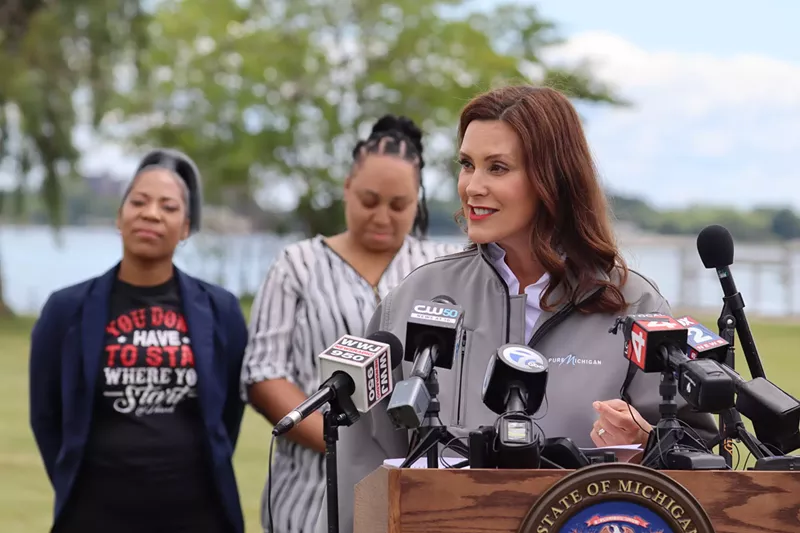
Governor Gretchen Whitmer touted "Futures for Frontliners" — her program inspired by the G.I. Bill that was launched during the pandemic to offer tuition-free college for frontline workers — and called for the state Legislature to expand it.
Whitmer made the comments Tuesday during a press conference on Detroit's Belle Isle to celebrate the end of Michigan's 15-month-long pandemic restrictions.
"This pandemic was relentless and exposed and exacerbated so many underlying challenges that were there before the pandemic, and will continue to be there after the pandemic," Whitmer said.
"It was thousands of essential workers that stayed on the front line, and that's really exceptional and worthy of our gratitude and acknowledgment," she added. "We've got to do more than just thank our essential workers."
The program was offered to workers in the medical field, manufacturing, nursing homes, grocery stores, sanitation, delivery, retail, and other industries. Whitmer said that more than 120,000 essential workers applied and more than 85,000 essential workers have been accepted into the program, with more than 15,000 already currently enrolled in classes.
"It's a program that's the first of the kind in America, and I'm hoping other states will copy us," Whitmer said. "I know lots of governors steal each other's good ideas and never give one another credit, but I'd be happy if others stole this idea, because this is replicated from after World War II, when we were able to pay for college and skills opportunities for those who served our nation. That's what this is about."
Whitmer's proposal would expand eligibility to workers who served between Nov. 1, 2020 and Jan. 31, 2021. It would be paid for using $100 million federal dollars, "a fraction of the billions that the Biden administration has sent to Michigan" through the federal American Rescue Plan, she said.
The initial phase of the program was funded with $24 million from the federal Coronavirus Aid, Relief, and Economic Security (CARES) Act. The expansion would make another 22,000 workers eligible for the program, including those who were unemployed during the COVID-19 surge in the winter, and fully fund two years of college for the recipients already taking classes.
"Every day throughout this pandemic, our frontline heroes woke up, they put on their masks, they got to work on behalf of their fellow Michiganders," Whitmer said. "They saved and contributed to the saving of countless lives in our state. And so it's not just gratitude, but it's an opportunity that we want to create for them."
Whitmer also called for a one-time disbursement of "Hero Pay" for essential workers who worked during the pandemic, as well as an "Economic Jumpstart Plan" to boost wages to at least $15 an hour by giving businesses grants to cover the difference for the next three months. A "Back to Work" incentive would also offer laid-off employees an additional $300 per week, in addition to their salaries, for returning back to work. Whitmer also called for expanding access to childcare for workers, and spending money to improve Michigan's schools.
Whitmer said the state has an unprecedented $3.5 billion surplus, thanks to the federal stimulus funds. "Twelve months ago, we thought we were going to have a $3 billion deficit," she said. "We now have a $3.5 billion surplus. This is an opportunity where we can make transformational change."
Whitmer said since its using federal funds, the programs would have "zero impact on the employer or on the state budget."
The state cannot have an economic comeback unless it addresses these issues, she said.
Stay connected with Detroit Metro Times. Subscribe to our newsletters, and follow us on Google News, Apple News, Twitter, Facebook, Instagram, or Reddit.

